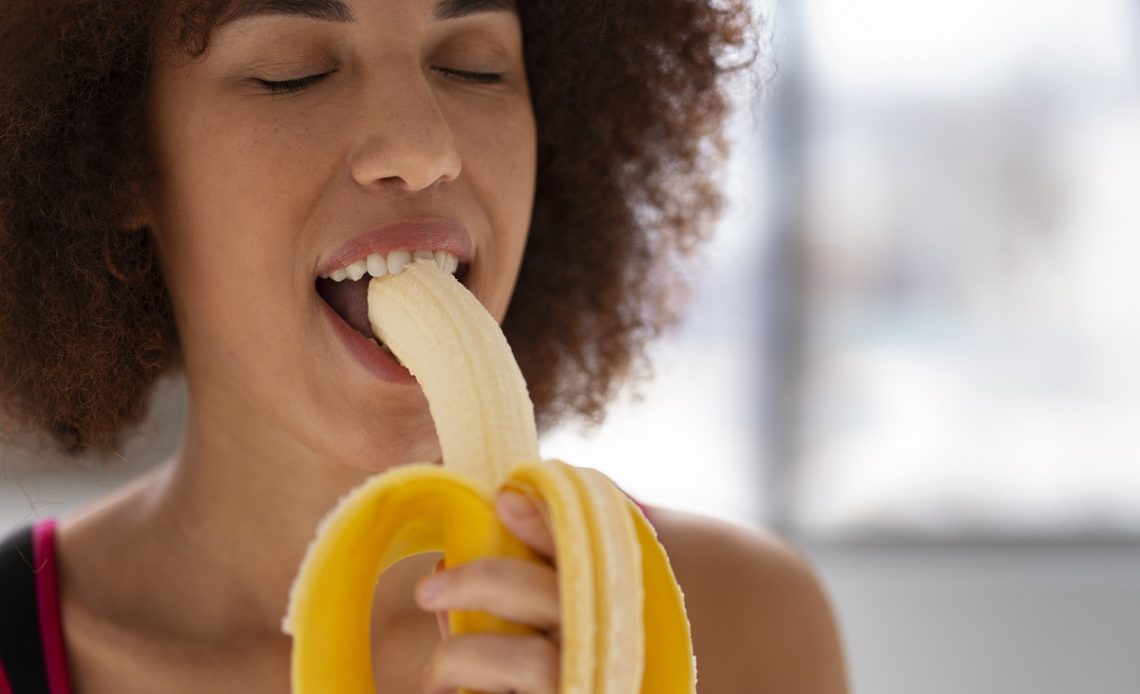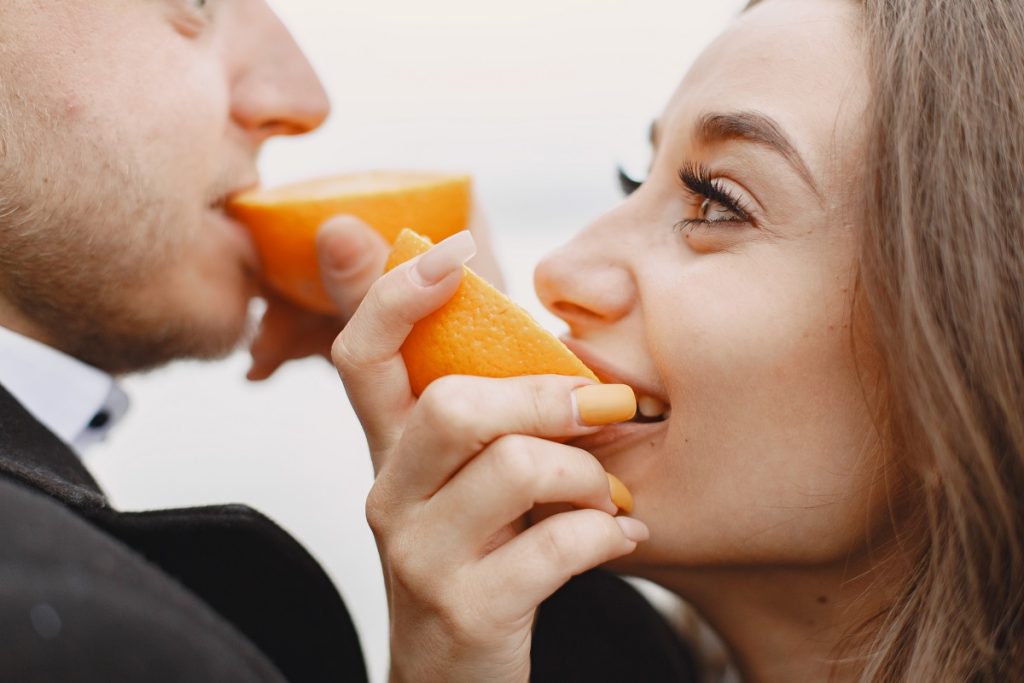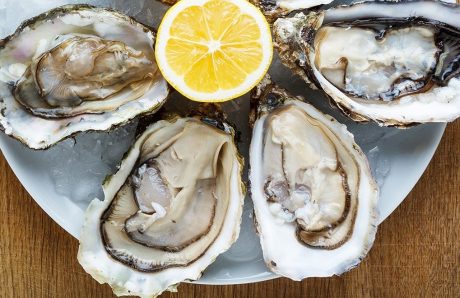
Sexuality remains a taboo subject for many people. Yet it’s essential to remember that it’s just as much an integral part of a balanced lifestyle as a healthy diet. Have you noticed a drop in sexual desire without knowing why? You’re not alone: it’s a common situation that can be linked to physical, psychological or even environmental factors.
The good news is that it is possible to act on these factors with simple solutions to regain a fulfilling sex life. In the rest of this article, we offer you some simple but effective advice to improve your sexual vigour.
Foods and nutrients for better sexual health
Discover below the foods and nutrients to boost your sexual fitness.
Maca
Maca is a hormonal stimulant for both men and women. This anti-fatigue Peruvian plant restores vigour and energy to those who consume it. It is not really an aphrodisiac, but rather an adaptogen acting as an overall hormonal stimulant. This translates into reduced morning fatigue, less need for sleep to recover and better concentration throughout the day. This feeling of rapid well-being is explained by the stimulation of the adrenal glands, which promotes an increase in the various hormones essential for sexual vigour.
Tribulus terrestris
The fruit of this plant, which grows in Eastern Europe, is perfect for boosting libido and improving erectile dysfunction due to low testosterone. Numerous clinical studies have reported a 30% increase in testosterone levels in people who regularly took 750 mg of this plant for two to three months, without any side effects.
The increase in testosterone in the body leads directly to an intensification of libido in both men and women. Tribulus appears to have the effects of a hormone, even though it is not one. The tribulosides it contains bind to receptors in the hypothalamus, stimulating the pituitary gland. The latter then increases the level of LH (luteinizing hormone), which in turn stimulates the Leydig cells of the testes, leading to the production of free testosterone.

Chinese dodder
This plant is intended for men with erectile difficulties. In Chinese medicine, it is traditionally used to strengthen the energy (Qi) of the kidneys. Dosage is 1 gram per day in capsule or tablet form, to be taken in the morning and at midday.
Muira puama
The bark of this Brazilian shrub is traditionally used by Amazonian indigenous peoples to treat impotence. However, it is important to note that no reliable scientific study has yet been able to determine the dosage at which Muira puama is effective. Muira puama can be found alone or sometimes combined with other aphrodisiac plants in complexes.
Ginseng (Panax)
A one-week course of ginseng ampoules can give the body a real boost. In fact, Siberian ginseng has no direct effect on libido, but it does improve erection quality by promoting blood circulation. Siberian ginseng should be taken daily in the morning for a maximum of one week or two weeks, with a rest period of the same duration before resuming the treatment.
Ginkgo biloba
Known as the “tree of forty écus”, Ginkgo is not classified as an aphrodisiac. However, it undeniably acts on blood circulation, improving vascularization in the pelvic areas of both men and women. It is recommended to take 120 to 180 mg of extract before dinner, unless the person is on anticoagulant therapy, as this plant is not compatible with such treatment.
Rhodiola rosea
According to studies conducted in Russia, taking rhodiola improved erectile function in over 85% of cases. This makes sense, as this plant is known to increase resistance to stress and combat fatigue. To reap the benefits of Rhodiola rosea, we recommend taking 350 to 700 mg a day, ideally in the morning on an empty stomach or half an hour before breakfast.
Saffron
Since ancient times, saffron has been renowned for its aphrodisiac properties. In traditional Persian medicine, Ayurveda and other cultures, it was recommended to stimulate libido and improve mood. Derived from the dried stigmas of the crocus plant, this spice is rich in active compounds such as crocin and safranal. These substances have antioxidant and antidepressant properties. By improving blood circulation and acting on certain neurotransmitters such as serotonin and dopamine, saffron promotes sexual arousal and pleasure.
Fenugreek
Used since ancient times in India, the Middle East and Egypt, fenugreek is an ancient spice and medicinal plant. In Ayurveda, fenugreek, or Methi, is considered a digestive tonic and an ally of feminine health. In the past, it was attributed with galactogenic and aphrodisiac virtues. It was also used in ancient Egypt as a desire-enhancing remedy. What’s more, its seeds are rich in steroidal saponins, such as diosgenin, which help balance sex hormones and support reproductive function.
According to recent studies, fenugreek is indeed effective in increasing libido, thanks to its action on hormones. A randomized controlled trial on 80 women suffering from low desire showed that taking 600 mg fenugreek extract daily for 8 weeks significantly boosted sexual desire and arousal, compared with a placebo.

Ashwagandha
Ashwagandha, often nicknamed “Indian ginseng”, is a major plant in Ayurvedic medicine. Since ancient times, it has been used in India to stimulate energy, longevity and rejuvenation. It is a renowned aphrodisiac, improving overall sexual health.
In Ayurvedic doctrine, ashwagandha is considered a rejuvenating plant (rasayana) and an aphrodisiac (vajikarana). Its Sanskrit name, meaning “the strength of a horse”, illustrates its action, restoring vigour to body and mind. Its main action is to reduce cortisol, the stress hormone, and promote neuro-hormonal balance. This action removes certain psychological blockages that can affect libido.
The consequences of reduced sexual vitality
A drop in libido can have a negative impact on your emotional life, especially as a couple. Even if sexual activity is not a vital necessity, it remains beneficial for the body. In fact, when one partner experiences a drop in desire, sexuality can become a source of conflict and misunderstanding within the couple. In the long term, a sex life at half-mast can lead to suffering, frustration and even a break-up. But a fulfilling sexuality can be a great source of satisfaction and happiness for the couple.
Good sexual health reflects a healthy lifestyle. A balanced diet, healthy habits and stress management are the keys to naturally stimulating vigor and intimate well-being. Avoid foods rich in unhealthy fats and sugars, as they are detrimental to libido.







